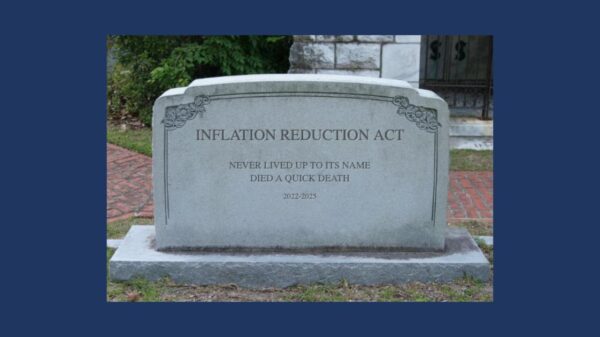President Biden’s State of the Union speech produced yet another round of the Social Security demagogy that seems to have become a permanent fixture of our political landscape. Because Social Security is such a popular program and because so many seniors rely on it, Democrats use any hint that the program may need some adjusting to level the charge that Republicans want to cut or eliminate the program. As a result, we never have an intellectually honest discussion about the program.
Most Americans confuse the mechanics of Social Security with those of a traditional retirement savings plan. In a retirement savings plan, money is set aside during a person’s working life and invested for their retirement. There is literally an account with assets which will provide the person with income after retirement.
Social Security is an entirely different kind of program. It was created in 1935 and Americans began paying Social Security taxes in 1937. The program began making benefit payments just three years later in 1940. Obviously, those early retirees had not contributed enough into the system to “pay for” the benefits they received. Their benefits were paid by the tax payments of younger workers. Since then, every generation has been paying for the previous generations. Thus, Social Security really is, and always has been, a transfer of income between generations. The money you and I paid into Social Security did not go to create an account for us somewhere, it went to support our parents and grandparents.
Some have suggested this makes Social Security some kind of Ponzi scheme. But the reality is that the care of the older members of any society has always fallen on the younger generation. In traditional, mostly agrarian societies, the care was the responsibility of family members or tribes.
But with the advent of the Industrial Revolution and the urbanization of America, those traditional models began to break down. As a result, in 1935, we made a decision to nationalize the obligation to care for seniors through Social Security.
For most of Social Security’s history, the tax payments into the system have exceeded the benefits paid. Those annual surpluses have created a trust fund from which future benefit payments can be made. However, that fund is very small compared to the total benefits owed by the system at any point in time. In most years, the trust fund is only enough to cover 2-4 years of benefit payments. The trust fund was never intended to fully fund future benefits but rather to provide a cushion for economic downturns.
The fundamental dilemma Social Security has presented since its inception is that people keep living longer and having fewer children. Both of these demographic trends have continuously put financial pressure on Social Security. Also, Congress has routinely increased benefits, including the adoption of automatic cost of living increases in 1972, adding to the financial stress on the system.
That pressure has mostly been relieved by increasing the payroll taxes that fund Social Security. When the program started in 1937, the total tax rate (employer + employee) was 4.0% on the first $3,000 of wages. The rate today is 15.3 percent of the first $160,200.
But by the mid-1970s, the country’s demographics began to outrun the payroll tax rate increases. By 1981, the reserve trust had fallen to a precarious 17 percent of the annual benefit payments. That prompted President Reagan to convene a national commission to study Social Security. The recommendations of that commission were largely adopted in a bipartisan overhaul of the system in 1983, engineered by President Reagan and then-House Speaker Tip O’Neill.
The 1983 law accelerated some payroll tax increases but it also, for the first time, reduced benefits. These reductions came in the form of taxing a portion of the benefit payments received by seniors and putting in place a gradual increase to the retirement age from 65 to 67. The plan worked and by 2008, the trust fund grew to over four times the annual benefit payments, the highest it had been since the 1950s.
But the demographic trends and changing employment dynamics are once again catching up with us. As of the end of 2021, the trust fund was down to 275% of annual benefit payments and had its largest ever deficit of $59 billion.
The Congressional Budget Office currently projects that the Social Security trust fund will be depleted in about 10 years. If nothing is done to reform the system, Social Security would only be able to pay about 75-80 percent of the benefits due to retirees at that time under the current law.
Social Security is not in a crisis today, but it is time for responsible adults to make adjustments to the system to ensure that it is there for the younger generations who are currently paying into the system. Unfortunately, we seem to be short on responsible adults and long on demagogues in Washington today.
Where are Ronald Reagan and Tip O’Neill when you need them?
Bill King is a businessman and lawyer, and is a former opinion columnist and editorial board member at the Houston Chronicle. He has served in a number of appointed and elected positions, including mayor of his hometown. He writes on a wide range of public policy and political issues. Bill is the author of “Unapologetically Moderate” and currently serves as the co-chair of the Forward Party of Texas. This article was originally published by RealClearPolitics and made available via RealClearWire.


















